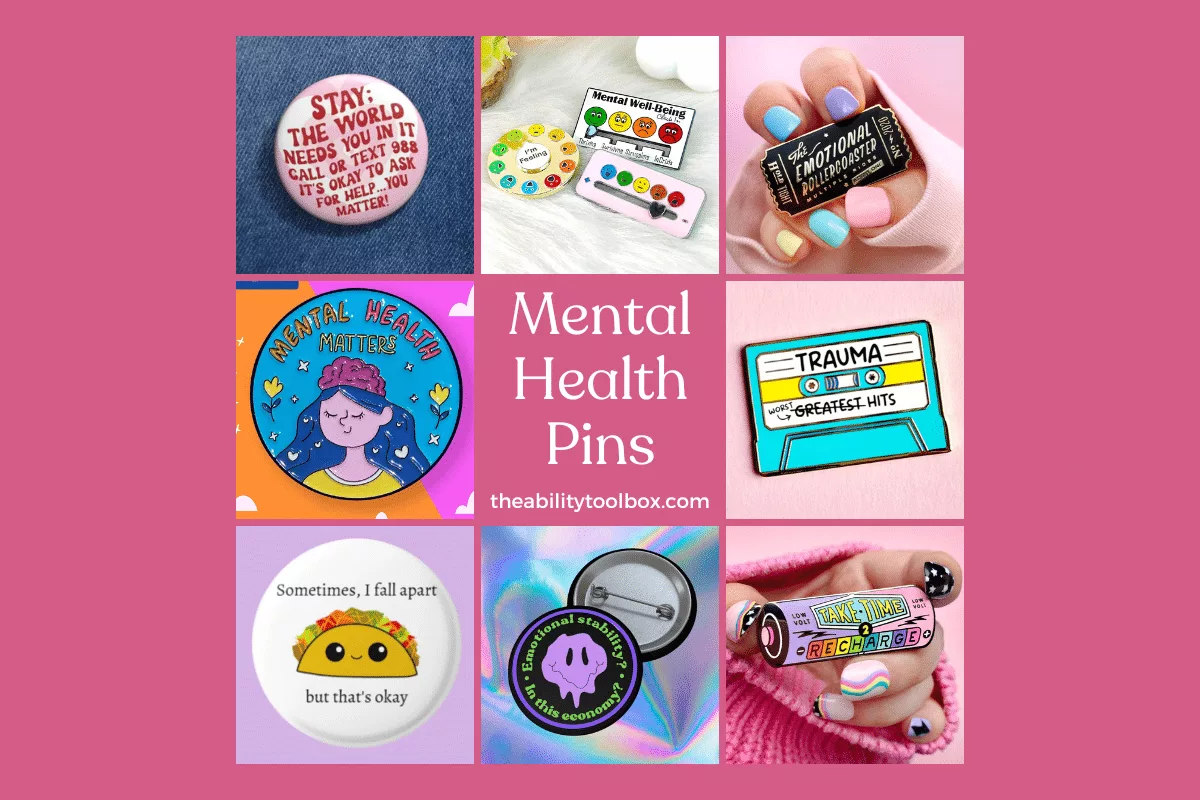
I understand the premise of celebrities discussing mental health, positively influencing disability and perhaps being honest about their conditions. But comparisons also result in increased narcissism — just look at social media. the prevalence of ableism — that you “should” be capable of doing something like celebrities despite inequities; and “inspiration porn” — that those with disabilities are inspiring simply by way of transcending a “drawback.” So how do we deal with a sense of status engulfing the world of mental illness? On the one hand, it's inspirational transcendence of something once disparaged. On the other hand, it's a paralyzing trigger.
Let's discuss the problems inherent in comparing yourself to famous people who live with mental illness.
1. Some celebrities use mental illness as a unique selling point.
That Britney Spears triumphed over having her mental health used against her, as read in The Breakdown, is truly inspirational. But there's also an increased presence of celebrity mental illness that's become a ubiquitous buzzword. Celebrities also capitalize on something called a unique selling point. A media studies term, as per Wikipedia, USPs are a way of individualizing and differentiating celebrities from others to make them more marketable. Thus, by gradually becoming more accepted, mental illness is a way of doing so.
2. Comparing yourself to a celebrity can feed ableism and feelings of inadequacy.
Mariah Carey and Catherine Zeta-Jones have bipolar disorder. Lady Gaga lives with PTSD from repeated sexual assault as a teen. They and many more famous people have other mental illnesses or neurodiversity. But it's a comparison that creates feelings of inadequacy; something like, “If they have mental illness and are high achievers, nothing should stop me.” However, their disorders don't grant or bar access to celebrity status. Disability is so vast and varied and its accompanying trajectory, success is immeasurable.
Celebrities with mental illness also have access to the best mental health care. That can make all the difference. Who knows what they do or take to attain such high performance? This is also “inspiration porn,” as coined by the late Stella Young, an Australian disability activist, in that we tend to see celebrities “overcoming” disability, making those without it more comfortable.
3. Fame can be a facade that shields bad behavior.
Many people have been traumatized by pillars of the community who publicly convey a certain image while hurting and exploiting those around them. I've personally nearly been creatively taken advantage of as a budding stand-up comedian. My nemesis went on to become a global, millionaire megastar. Celebrity for me is raw, visceral, and real. I feel it. The pursuit of celebrity status partly instilled my depression. However, to stop this from getting me down, I read about other kinds of celebrities such as actors or singers. I've not been affiliated with those industries and simply take the good from it without fixating.
4. It promotes sentimentality and glorifies mental illnesses that are often debilitating.
Glorifying celebrity mental illness also conveys a sense of sentimentality. It suggests those with mental illnesses are imbued with artistic giftedness, or that creativity is enhanced by it. In my experience, neither is true. As a writer, I have at times been debilitated by major depression. I'm even on antidepressants. I may need to medicate myself for other ailments soon as it's near impossible to get high volumes of writing done. Since we get a mere glimpse into the world of celebrity, mental illness resides seamlessly in the background. In reality, mental illness can hinder the muse due to economic and other polarities that dictate opportunities. Some with mental illnesses are just not interested in creativity either and that's OK. The biopic movie, “A Beautiful Mind,” about famous mathematician John Nash, though quite a respectful treatment of schizophrenia, is also heavily criticized for portraying Nash as capitalizing on schizophrenia. It ailed him much of his life, and he was in and out of institutions, not “saved” by his genius for maths.
5. It mythologizes talent.
Lady Gaga is likable and super talented. She was a victim of school bullying, where bets were placed as to how she would fail as a musician. Not listening to detractors is one thing but suggesting she got out of bed and defied her adversaries, is also mythologizing fame and success as utterly autonomous. As much as she relishes her talent, she is also subject to selective whim. She hasn't necessarily chosen to transcend depression or trauma. Relishing talent is made to be seamless. Just like the beautiful models in glossy magazines, a prodigy's success is also enhanced. Most can't emulate Mariah Carey's eight-and-a-half octave range or Lady Gaga's strong resonant alto. But we don't see the hours spent rehearsing; singing lessons; niche style — wholly dependent on audience taste — networking, and an entourage of stylists. Talent is hard work.
6. “Failure” to achieve the fame you sought can lead to nihilism.
Fame is fickle and often depends as much on luck and who you know as it does on talent and skill. No matter how hard someone works, they still might not “make it.” All that determination could simply culminate in nihilism. With a mental illness that might be hard. An insightful article in the recovery magazine, “The Phoenix Spirit,” warns about implosive anger and carrying a sense of injustice, which can lead to relationship breakdown, social destruction, and even crime.
7. What is success, anyway?
Maybe you won't be famous, maybe it will happen later, maybe you'll abandon the idea altogether, and success and fulfillment will occur in a different way. Comparison blinds you to the unique ways in which you achieve. Even the most adjusted individuals struggle with the pressure to cave to status. It also makes the health of celebrities appear more of a priority than ordinary folks. You may not feel heard already. This just adds another layer of voicelessness.
8. Being famous can cause or contribute to mental illness.
The famous also can't always talk about how fame might have exacerbated or created mental illness by being given everything, or due to fame's negatives. While it seems wonderful, lack of privacy, harassment and stalking via social media or in person, pressure to perform and entertain, and not knowing who you can trust among other things, predominates. Some celebrities' lives have gotten worse due to being famous. Yet because this doesn't fit with a meritocracy — a society that largely prioritizes prowess above other positive social factors — it's often excluded from conversations.
Conclusion
Celebrities aren't as autonomous as they seem. They also can't talk about insurance or schemes for disability, the effects of deinstitutionalization, and other grassroots stuff, which may compromise their status. The mental illness community suffers severely from a lack of realistic representation, either positively or negatively. Sometimes the last thing we need is to slip away into a dreamy paralysis of unreality. Being true to ourselves and not trying to be like others is often the best therapy.
I write about and work in disability, love animals, innovation, problem solving, unfathomable science, day dreaming and peace for all.







